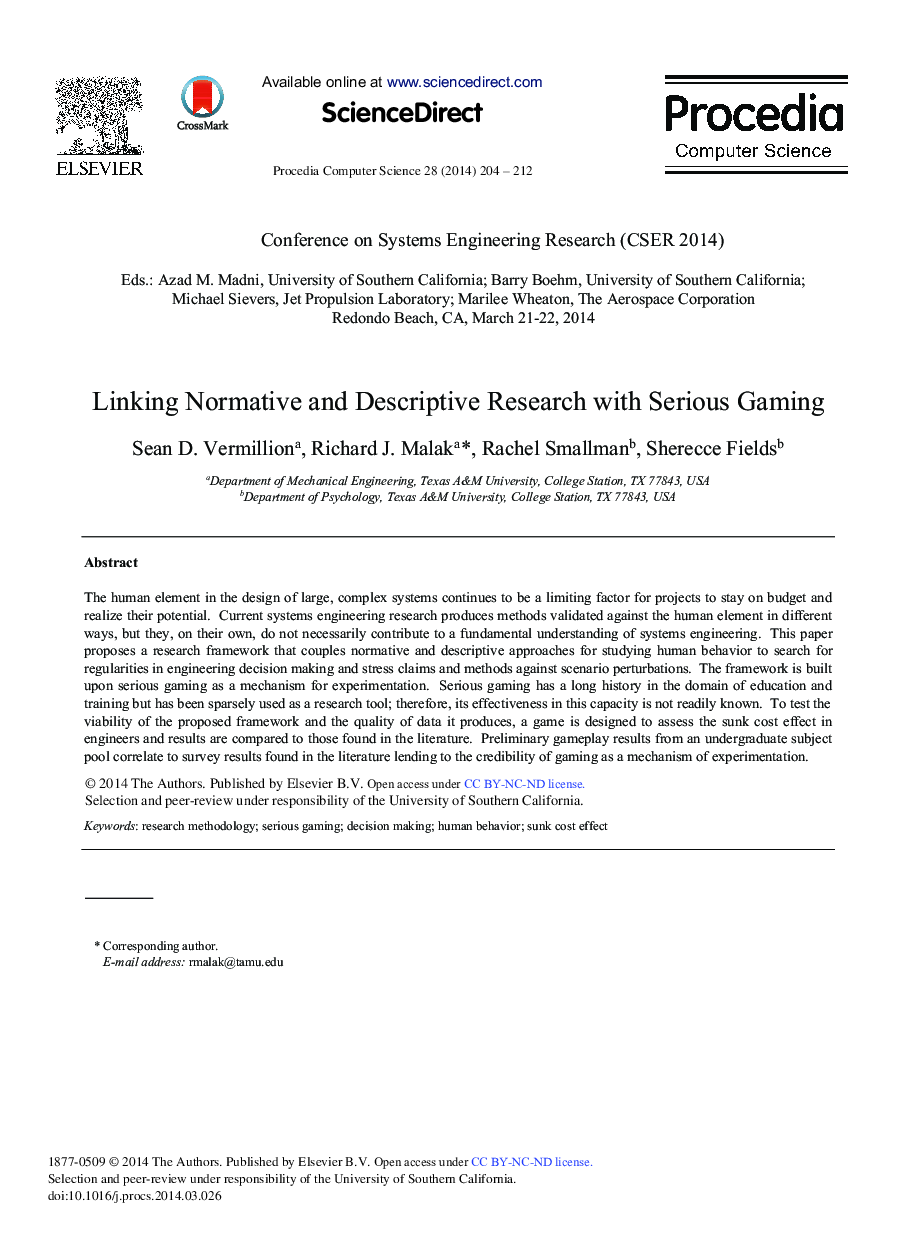| Article ID | Journal | Published Year | Pages | File Type |
|---|---|---|---|---|
| 487810 | Procedia Computer Science | 2014 | 9 Pages |
The human element in the design of large, complex systems continues to be a limiting factor for projects to stay on budget and realize their potential. Current systems engineering research produces methods validated against the human element in different ways, but they, on their own, do not necessarily contribute to a fundamental understanding of systems engineering. This paper proposes a research framework that couples normative and descriptive approaches for studying human behavior to search for regularities in engineering decision making and stress claims and methods against scenario perturbations. The framework is built upon serious gaming as a mechanism for experimentation. Serious gaming has a long history in the domain of education and training but has been sparsely used as a research tool; therefore, its effectiveness in this capacity is not readily known. To test the viability of the proposed framework and the quality of data it produces, a game is designed to assess the sunk cost effect in engineers and results are compared to those found in the literature. Preliminary gameplay results from an undergraduate subject pool correlate to survey results found in the literature lending to the credibility of gaming as a mechanism of experimentation.
